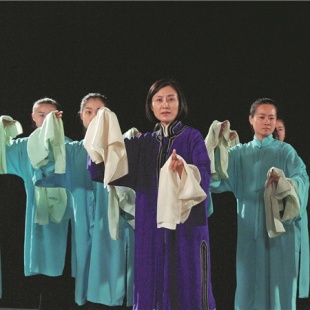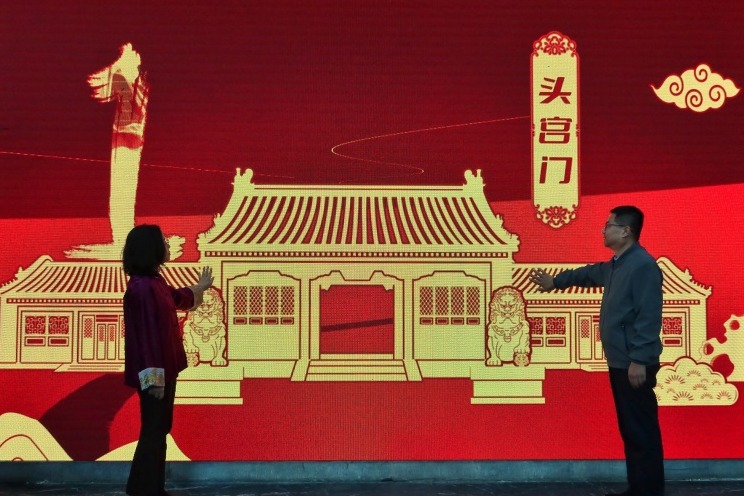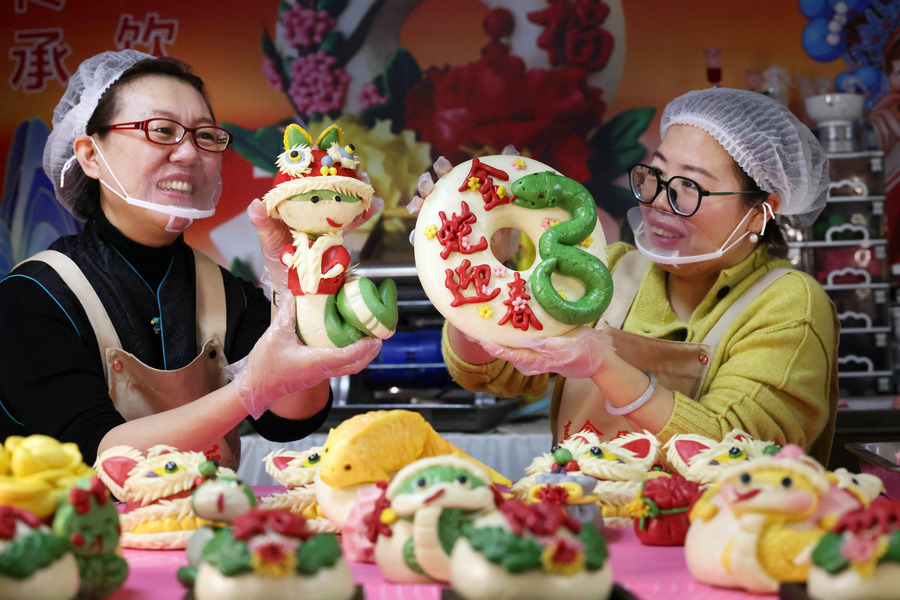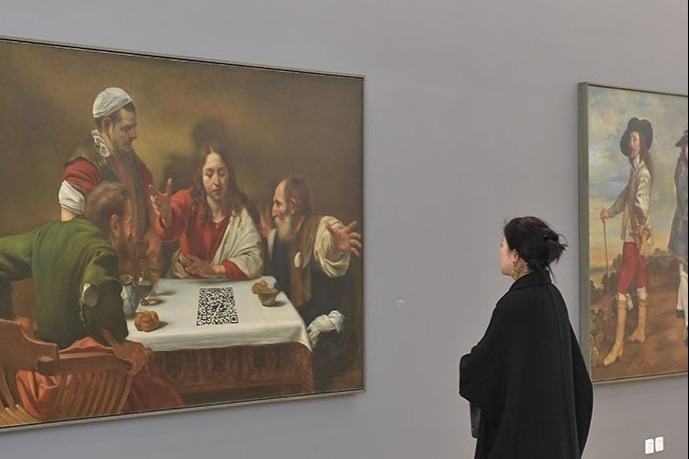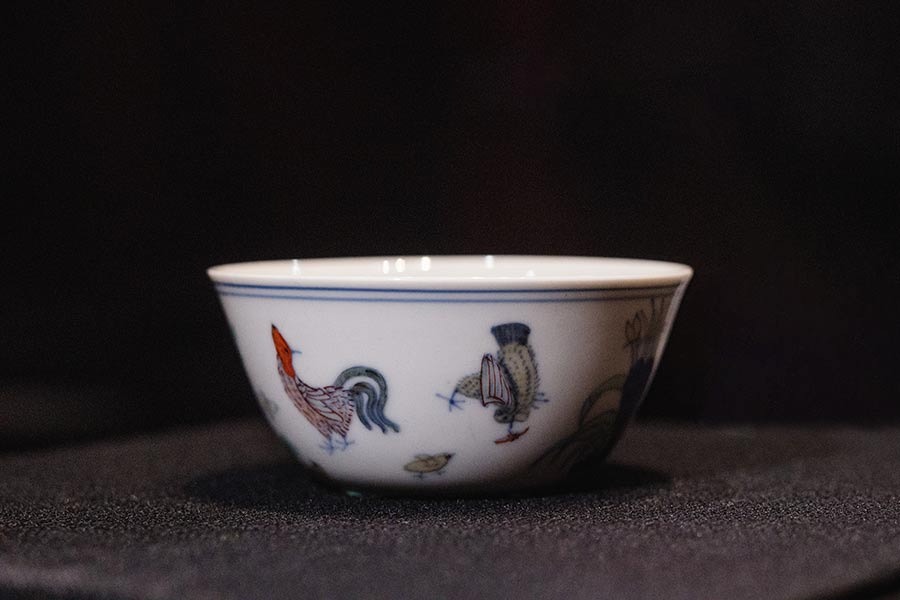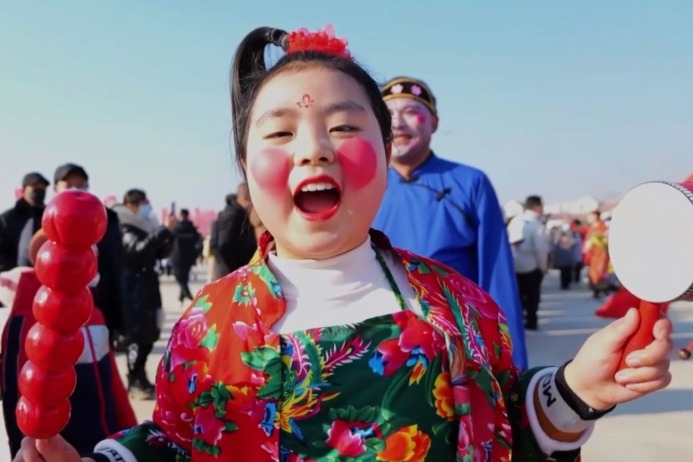Passing on passion for Peking Opera
Training under a national star can be grueling, but the path to perfection is possible, Chen Nan reports.


"I have classes with Zhang about twice a week, with each lasting for at least five hours. There are also other students and she gives each of us instructions. She cares about the details of expression, such as how to turn the body and how to move the long sleeves. I admire her solid techniques and most importantly, she inspires me to take the ancient art form seriously," says Lyu. "It's difficult for Peking Opera performers to become stars because it takes years to train in the basic skills, and longer to be successful in terms of building up your own performing style and connecting with the audience. Zhang Huoding is one of the few contemporary Peking Opera artists who have made it and can be called a star."
Zhang Huoding's Peking Opera story started at home. Born in Jilin province, she grew up in a family of performers — her father toured with a troupe that performed a traditional regional form of opera known as pingju (a type of traditional Chinese opera popular in Hebei province), and her older brother began studying Peking Opera as a boy.
As a child, she too fell in love with Peking Opera, also known as jingju. The art form dates back more than 200 years and was recognized as an Intangible Cultural Heritage of Humanity by UNESCO in 2010.
Zhang Huoding trained to play the role of qingyi — the graceful female role — and was trained by Peking Opera master Zhao Rongchen, who maintains the traditions of the Cheng style. In 1989, after graduating from art school in Tianjin, she joined a troupe in Beijing, and between 1995 and 2008, performed with the China National Peking Opera Company.
She once said in an interview that she is drawn to the Cheng style because the singing is deep in tone and the characters, though mostly sad, are powerful and strong inside.
In 2015, she made her debut in the United States with performances of The Legend of the White Snake and The Jewelry Purse at New York's Lincoln Center for the Performing Arts. Her last stage appearance was as Yuji, the lead role in the 2019 Peking Opera production of Farewell My Concubine.
"I was very lucky to be trained by Zhang Huoding. When I began to study at the National Academy of Chinese Theatre Arts in 2009, I was among her first group of students," says 34-year-old Peking Opera actress Li Wenying, who now performs with the China National Peking Opera Company.
Li's mother also loves the art form and the first Peking Opera video she watched as a child was of a performance by Zhang Huoding.
During the concert on Dec 3, Li will perform an excerpt from the classic, Chun Gui Meng (A Young Girl's Dream), which Cheng premiered in 1931.
"Back in 2009, Zhang Huoding would spend the whole afternoon with me, singing a line first and listening to me singing the same line, and then repeating it over and over again. I was very nervous about singing in front of her because she is not only a big star, but also a very strict teacher. Whenever I tapped my feet to the rhythm without thinking, she would stop me because she wanted me to be natural onstage, and not turn those movements into a habit," says Li.
"Now, I have returned to the school to study under her again. She is still a strict teacher, and is focused on the art, but I've also noticed changes. She talks more and we chat like friends, talking about things besides opera, such as our daily lives and our children," says Li.
Zhang Huoding doesn't take interviews or appear too much in public anymore, but she will attend the show on Dec 3, sitting in the audience and evaluating the performances of her students.
"My students are diligent, but this is still not enough to become a great performer. I hope that they will work as hard as possible," she said in an interview in 2022 following shooting for a movie by director Teng Junjie based on The Jewelry Purse.
"Peking Opera is a treasured art form, which needs performers to be very focused and requires a lot of practice. That's the kind of spirit that the art form always has, and it will never die. I hope that I am able to inspire young people," she said.


